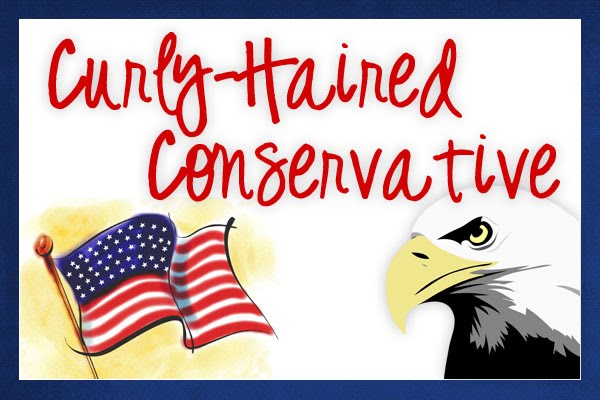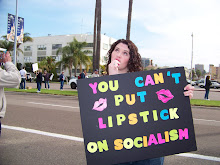Does this mean, then, that the Founders valued the tangible of property less than they cherished the vague pursuit of happiness (whatever that means)? How do the two ideas relate - or do they?
Life, liberty and property are inextricably bound up together. In order to sustain life, there must be industry. But industry is robbed when there is no respect for or protection of property - and when there is such a respect, and people have the liberty to pursue what they do best, then a society thrives on a macro scale, and individuals are happy as they improve their lives and pursue their interests.
Locke went so far as to argue that a threat to property was a threat to the essence of life itself.
So, those were Locke's thoughts on the matter. But did the Founders agree? I'd say that John Adams's view is one politicians today should hear. Adams said:
The moment the idea is admitted into society that property is not as sacred as the laws of God, and that there is not a force of law and public justice to protect it, anarchy and tyranny commence. Property must be secured or liberty cannot exist.
I love this concept, particularly in today's political climate that sees my beloved America slipping toward a socialist society in which lawmakers feel they have the right to play Robin Hood in order to help the needy.
Did you realize, though, that it was considered downright unconstitutional for the government to redistribute wealth until the Butler case in 1936 changed that precedent and interpreted "general welfare" to mean giving federal funds to the poor and needy. Contrast that concept with this 1795 Supreme Court ruling:
No man would become a member of a community in which he could not enjoy the fruits of his honest labor and industry. The preservation of property, then, is a primary object of the social compact... The legislature, therefore, had no authority to make an act divesting one citizen of his freehold, and vesting it in another, without a just compensation. It is inconsistent with the principles of reason, justice and moral rectitude; it is incompatible with the comfort, peace and happiness of mankind; it is contrary to the principles of the social alliance in every free government; and, lastly, it is contrary to the letter and spirit of the Constitution.
(This, of course, once again reinforces my issues with judicial review - what right did the court in 1936 have to turn its back and fundamentally shift the nation's thinking toward government-funded charity?! ... But that's an entry for another day.)
James Madison (my personal favorite Founder) put it like this:
Government is instituted to protect property of every sort... This being the end of government, that alone is not a just government, ... nor is property secure under it, where the property which a man has in his personal safety and personal liberty is violated by arbitrary seizures of one class of citizens for the service of the rest.
The fact of the matter is that equality and liberty simply cannot coexist. They are mutually exclusive - they have to be. If we are free to excel, then inevitably, some will fail. If everyone gets the same results, regardless of their labors, then they are not free, for an outside party is forcibly taking one man's increase and giving it to another who did not earn it.
Equality of opportunity is liberty at its best. When you see someone excel, doesn't it inspire you to do the same? Who doesn't love those American Dream stories of the poor kid from the streets who has a stroke of genius and creates an entire industry, changing the world with passion, determination and tenacity? When they succeed, we all benefit - not because their gain is stripped from them, but because that spark of ingenuity creates opportunity for others. It doesn't take away pieces of the economic pie from others; it expands the pie for all.
Furthermore, that economic freedom to succeed or fail has major social implications, as pointed out by renowned economist Dr. Ludwig von Mises:
If history could prove and teach us anything, it would be the private ownership of means of production as a necessary requisite of civilization and material well-being. All civilizations have up to now been based on private property. Only nations committed to the principle of private property have risen above penury and produced science, art, and literature. There is no experience to show that any other social system could provide mankind with any kind of the achievements of civilization.
Scottish economist Adam Smith's theory of a free market economy dovetailed with the American founding - his seminal The Wealth of Nations was published in 1776, and its emphasis on liberty meshed perfectly with the Founders' views. Thomas Jefferson called it the "best book extant" in the realm of political economy. So, naturally, as the Constitution was the basis for American law, Smith's concepts became the basis for America's economy.
And how did that work out for us? The United States became, far and away, the most prosperous nation on the face of the Earth until the early 1900s, when progressives began tinkering with the system, imposing tax after tax. Not surprisingly, after a century of such fiddling, our economy is hurting - and yet, not seeing the forest for the trees, lawmakers seem to think the solution is to impose yet more taxes and to increase the government's chokehold upon the people's pocketbooks.
Personally, I'd like to see a return to respecting private property rights. Locke had it right - when people take something and improve upon it, then they take ownership of it, for their labor and special touch has upped its value. The object then becomes an extension of the individual. There is a spiritual nature involved in work - yet another post for another day - but somehow today's society has lost touch with the innate value of a solid work ethic. Instead of worrying about feeding the poor for a day, we must teach them to fish and inspire them to excel so that they, too, can gain the intangible benefits that come from diligence. That will help them to truly pursue happiness far more than handouts ever will.
* Giving credit where due, all of the quotations in this post were pulled from W. Cleon Skousen's The 5,000 Year Leap, from his 14th principle of freedom, in particular. The commentary, however, is from my heart and mind. Skousen just gave me some good materials from which to springboard. AMAZING book, by the way. If you haven't read it, you must!





